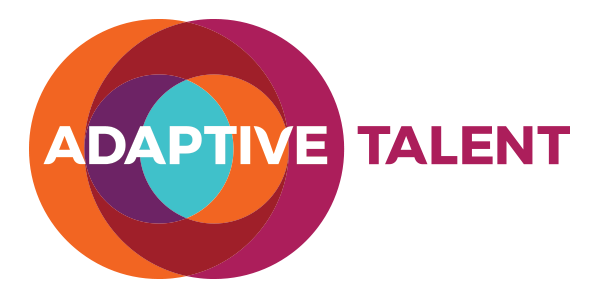I’ve written extensively about the benefits of an agile approach to product or service development, and savvy readers will have wondered about the implications for talent management (everything from recruiting to workforce planning, career development, and succession planning; essentially your talent supply chain).
Dr. John Sullivan makes a great point for the absolute necessity to apply rigorous practices to your talent management framework and activities. Most larger HR organizations tend to be quite functional in nature and it takes a strong VP or Director to work backwards from the business strategy and see where you’ll get the biggest bang for your buck. This might mean shifting or reducing resources from one department to another, leveraging external partners, or all of the above.
He offers a concise definition of agile talent management that I think is worth quoting: “Rather than the traditional “one-size-fits-all” HR strategy and budget that remain unchanged all year, an agile talent management approach requires shifting strategies and approaches rapidly and nimbly as often as each quarter to better meet the changing needs of the talent marketplace. Agility requires that when the environment changes, the talent management strategy must shift to handle those changes in the environment. For example, when the unemployment rate goes up significantly, both recruiting and retention become easier (because everyone have fewer job options), so fewer HR resources need to be applied in order to produce the same results.
Agility requires talent management to be scalable, which means talent management leaders must have a plan to handle both a higher and a lower volume of work and to shift their cost structure up or down in order to meet the “new normal.””
Take a look at his article to see everything the business should be considering, but in my mind step one is getting the exec team to go deeper on the vision, mission, strategies, brand promise, and key competitive differentiators beyond the standard half day offsite. Those almost always tend to focus on quarterly objectives and – while that’s obviously important – they fail to establish a vivid and actionable context for different scenarios. This may initially seem like an academic exercise (after all, we have tasks to do!), but when you examine 2-4 different plausible scenarios against each other and see what things are common and different in terms of organizational and human capital requirements you start to realize that certain investments, processes, and other infrastructure needs must be ready to go. Suddenly what was “important” becomes “mission critical” and you can properly focus your team.
This kind of what-if planning has positive downstream benefits for leaders because employees will start to see their decisions within a broader context of a competitive marketplace. Instead of just getting a feature or project done for the pure fact of getting it done (for example, it might be functionally important but of limited strategic utility to the entire organization) you should see employees prioritizing their time on the things which give the organization greater flexibility against the main possibilities (cost, competitive moves, changes in demand, etc.).
I’ll make a final point: scenario and agile planning are significantly more powerful if coupled with investments in coaching skills for managers, and organizational cultural practices like all-hands where deeper business updates and details are shared, employee-led process or initiative teams, mentoring, social recognition and learning, etc. All of those begin to focus every team member on deepening their understanding of the organization’s landscape, opportunity, threats, and their role in making it a winner. Imagine a People Operations team driving this kind of work for an organization and then going deep on aligned talent management strategies and investments. Think the exec team will be listening and wanting to partner? Absolutely.
—
Adaptive Talent is a talent consultancy designed to help organizations achieve amazing results and ongoing adaptability. Founded in 2008 and based in Vancouver, Canada we offer retained search, assessments, total rewards consulting, training, leadership coaching and development programs, and culture & organizational development consulting.

